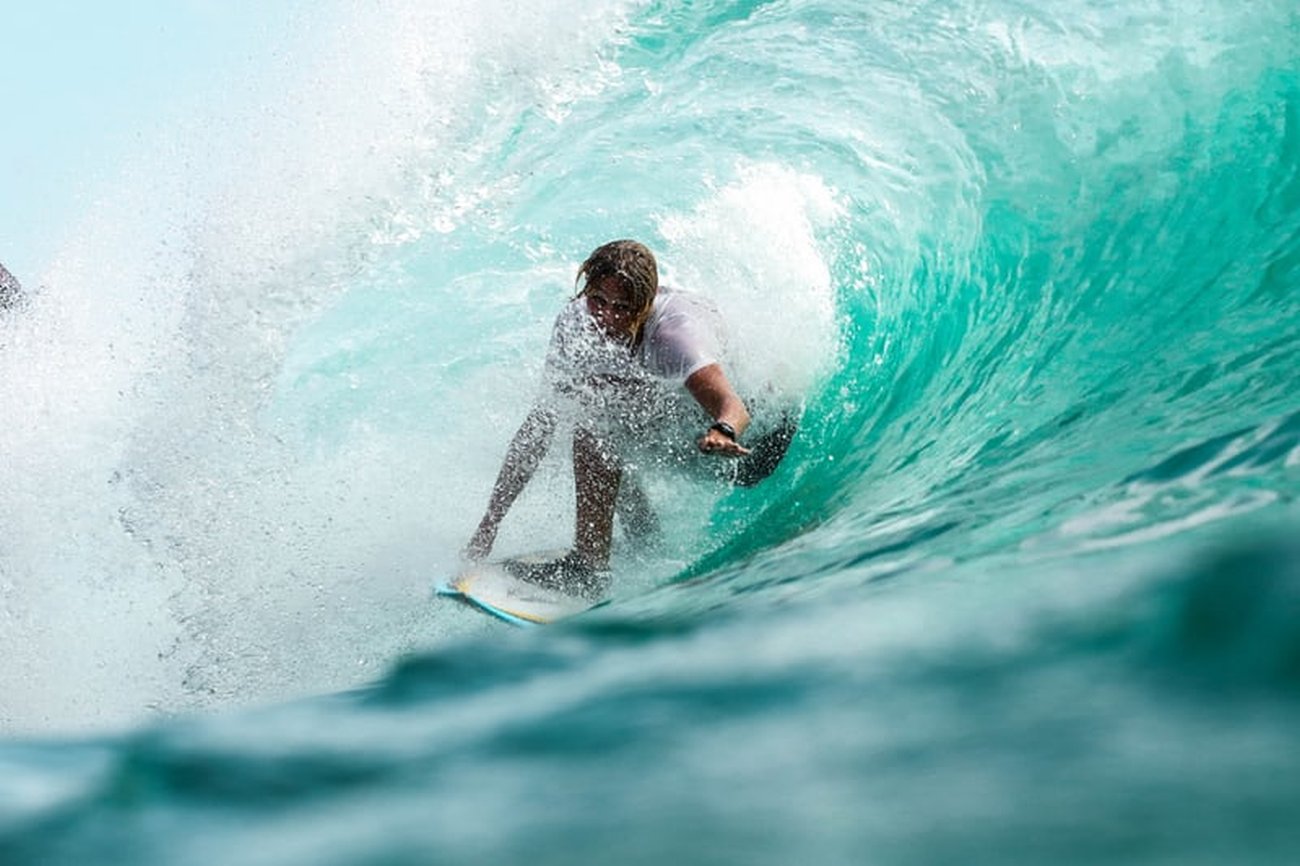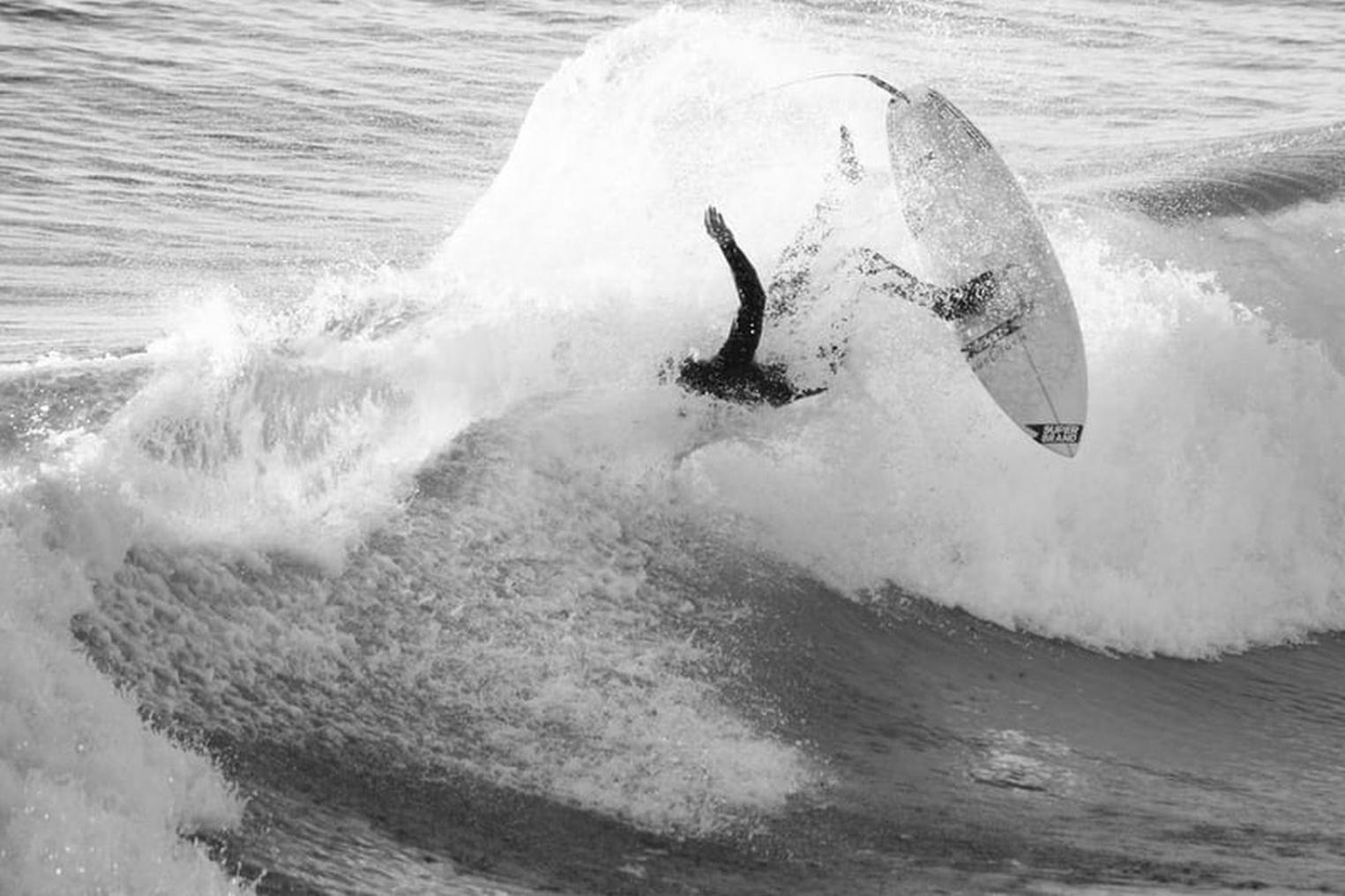How Surfing Brings About Biocentrism
Surfing is not just a water sport but a cult that is often associated with pro-environmental attitudes and biocentrism. Biocentrism describes a view that denies humans superiority over nature and regards all living beings as equals. But what is it about surfing that makes people adopt a biocentric point of view, despite living in an anthropocentric world?
To receive the Luxiders Newsletter, sign up here.
When thinking of surfers, we are most likely to imagine them gliding gracefully through the heart of the barrel, which is the hollow part, formed by a breaking wave. This fragile moment in which surfers seems so in harmony with the untamed ocean is for most people the highest reward that renders all efforts, failures, and resilience worthwhile. Surfing requires one to be in absolute tune with nature. Therefore, it is not surprising that surfing is often associated with pro-environmental attitudes and biocentrism. Biocentrism describes a view that denies humans superiority over nature and regards all living beings as equals. But what is it about surfing that makes people adopt a biocentric point of view, despite living in an anthropocentric world?

Today over 50 % of the world’s population lives in urban areas. This trend is projected to rise further to 68% by 2050. Daily life in urban capitalist areas is often full of distractions. Advertisements are wrongfully promising us happiness and fulfilment in the future as long as we continue purchasing the latest products. Technologies simply enabled us to afford this way of life. Using our instincts became redundant when we removed all dangers and natural enemies from urban landscapes. Ultimately, we find ourselves as passive consumers, caught in a running wheel, as we forgot how to stop running.
SURF-AWAKENING
However, surfing might enable us to break this vicious circle, as it suddenly exposes one to nature and its tremendous power. The ocean does not conform to any manmade laws, but to laws that are much bigger and powerful than we are. Laws that are sometimes too complex to understand, which makes the ocean and its waves, their frequency, size, speed, and length unpredictable. It forces surfers to become proactive and reactive, by having to pay extreme attention to their senses, instincts, and the environment around them. This can also cause a meditative flow state. A state of serenity but increased mental activity during which surfers do not only connect with themselves but nature. No wonder surfing is frequently perceived as a unique spiritual experience.
LEARNING A LESSON FROM NATURE
Besides, surfing teaches humility and make’s one question human superiority towards nature. Any surfer will experience limitations of one’s physical and mental abilities. One moment of inattention, a wrong estimation or even just an unconsidered movement can lead to surfers being washed away and pushed underwater for seemingly endless seconds. Therefore, every experienced surfer knows that successfully riding a wave consists of adapting to the ocean, not by trying to control it. This knowledge is essential for moving towards a less anthropocentric and more biocentric mindset.


THE SURF INDUSTRY, AN AGENT OF ANTHROPOCENTRISM
However, these pro-environmental effects are in danger to be subverted by the surf industry. The surf industry conforms to capitalist structures by creating a stereotypical image of an easy-going, eco-friendly surfer, to promotes surfing as a way to achieve a better life. However, the surf industry is not interested in rendering surfing a way to embrace nature, but rather in commodifying surfing as a competitive sport, which reduces the surf experiences to merely one’s performance. Surfing often becomes the pursuit of finding the best wave, which involves un-environmentally conscious practices, such as surf tourism. For that purpose, nature becomes solely a means to attain personal goals, which reinforces ignorance and anthropocentric views.

Surfing allows surfers certainly unconventional proximity to nature and evokes a connection that can generate the way nature is regarded and treated. Besides, surfing provides the opportunity to gain knowledge, the ability to reflect and to achieve self-growth. Protecting nature would thus be within one's own interest, as the destruction of it would mean the destruction of a source of unique self-fulfilment. Ultimately, surfing seems to create awareness of the dependency and understanding of living being’s interconnectedness that promotes a biocentric view and changes the relationship dynamic between nature and mankind. However, for that purpose, one ought to avoid becoming a victim of the surf industry, which is inevitably part of a nature-exploiting system.

+ Words:
Lissy Reichenbach
Luxiders Magazine




